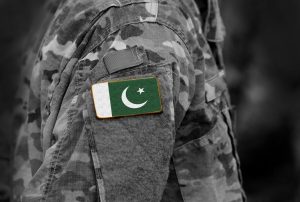Earlier this week, a Pakistani military court jailed 60 Pakistan Tehreek-e-Insaf (PTI) workers for attacking military installations after former Prime Minister Imran Khan was arrested in 2023. Among those sentenced were notable figures, including Khan’s nephew and two retired military officers.
These recent rulings follow a prior announcement from the Inter-Services Public Relations (ISPR), which said that 25 PTI workers had already received sentences of rigorous imprisonment related to the May 9, 2023 violence. The ISPR further emphasized that true justice would only be achieved when those deemed “masterminds” behind the attacks were held accountable.
A nationwide protest erupted after Khan’s arrest on May 9, 2023. Workers of the PTI ransacked military installations across the country in an unprecedented reaction against Pakistan’s powerful military.
For over a year, the military has maintained that without addressing the actions taken during the May 9 riots through appropriate sentencing, Pakistan cannot progress as a country. Despite this insistence, civilian courts have been slow to act on these matters. However, in a significant development, the Supreme Court’s constitutional bench recently conditionally permitted military courts to issue reserved verdicts for 85 civilians still in custody for their alleged involvement in last year’s riots.
This ruling represents a considerable victory for the military establishment, which has long advocated for civilian courts to impose penalties on those involved in the attacks on army installations while also calling for direct prosecution of guilty individuals by military institutions.
Among other things, the Supreme Court’s decision provides legal legitimacy and cover for these convictions following its verdict. Furthermore, it may facilitate future announcements of verdicts by asserting constitutional backing — thereby alleviating some domestic and international pressures on the military that could arise from proceeding without such legal justification.
In response to these convictions, concerns from the international community have emerged prominently. The United States expressed deep apprehension regarding these sentences. Similarly, the United Kingdom’s Foreign Office expressed disapproval of military court trials, saying they lack independent scrutiny. The European Union echoed this sentiment by asserting that such sentences are inconsistent with obligations under international human rights treaties like the International Covenant on Civil and Political Rights.
These criticisms have prompted a response from Pakistan’s Foreign Office; on Tuesday, spokesperson Mumtaz Zahra Baloch emphasized that the judgments rendered by military courts were conducted under a law enacted by Parliament and aligned with the ruling of the Supreme Court of Pakistan. “Pakistan is fully committed to fulfilling all its international human rights obligations,” she asserted.
It is noteworthy that while these foreign governments have issued statements concerning this development, their responses have been relatively muted and do not escalate to a level perceived as a threat to the current civil-military regime in Pakistan. For instance, the second round of convictions handed down by military courts ignored earlier calls from the international community for caution after last week’s announcements.
This context suggests that Pakistan is under no substantial pressure regarding this issue; rather, any future sanctions will likely hinge on how the PTI navigates its relationship with both the government and military authorities.
The PTI leadership appears to be recognizing shifting dynamics following several unsuccessful attempts to exert pressure on military leadership through protests and agitation efforts.
Earlier this month, Khan announced that the PTI would form a committee to negotiate with the government. Interestingly, this committee has established January 31, 2025, as a target date for concluding ongoing negotiations, a move indicative of PTI’s dwindling options. It does seem that the PTI realizes it needs to reach an agreement with government and military leaders to mitigate potential trials against Khan in military courts.
Moreover, it is essential to consider that these sentences handed down by the military courts also carry political implications. On one hand, they serve as a deterrent against future assaults on military installations. Additionally, these convictions signal to the PTI leadership that Pakistan’s military courts are capable of enforcing their will, regardless of the party’s popularity.
This situation serves as an important reminder for pragmatic voices within PTI to reassess their strategies and persuade hardliners within their ranks toward recalibrating their approach in light of current realities.
As the military pursues convictions against those involved in attacking its installations and Imran Khan’s party returns to dialogue, interesting times await.

































